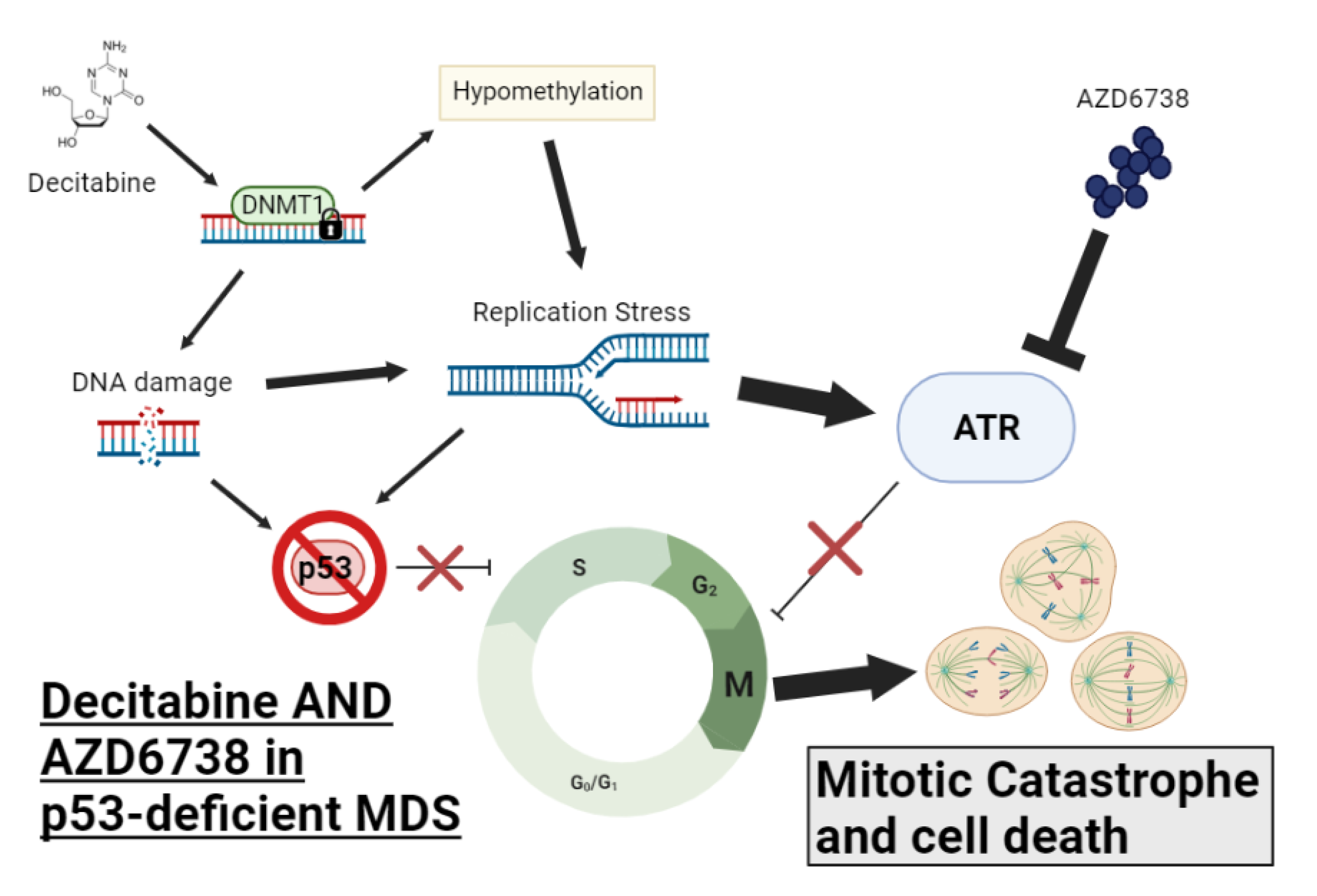
Researcher Profiles

Jeremy Baeten, Ph.D.
2022 Funding recipient
Combined targeting of ATR and replicative stress in TP53 mutated MDS
EvansMDS Young Investigator Award
PROJECT SUMMARY
Myelodysplastic syndrome (MDS) carrying mutations of the TP53 gene represents a very-high risk subgroup of MDS. TP53-mutated MDS is resistant to standard treatment and has a dismal prognosis, with a median survival of less than 1 year. We previously reported that the majority of patients with TP53-mutated MDS respond to decitabine, a hypomethylating agent (drug that decreases methylation marks on the DNA). However, these responses are not durable. Thus, there remains a pressing need for better therapies for patients with TP53– mutated MDS. In our preliminary studies to identify why there is an initial response to decitabine, we discovered that this drug impairs DNA replication, the process by which DNA is copied when cells grow and divide. This impaired DNA replication activates the ATR gene, which halts cell division and allows the cells time to complete DNA replication. Treatment with an ATR inhibitor (AZD6738) overcomes this decitabine-induced block in cell division, inducing cell death. Strikingly, TP53-mutated cells are much more sensitive to the combination of decitabine and ATR inhibition. Indeed, this drug combination induces potent synergistic killing in TP53-mutated cells. In this proposal, we will rigorously assess the therapeutic activity of decitabine and AZD6738 in TP53– mutated disease using animal models and patient-derived samples. We also will explore molecular mechanisms by which these drugs synergistically kill TP53-mutated cells, looking closely at how they progress through cell division, the speed and accuracy of their DNA replication, and whether they accumulate damage to their DNA after treatment. Ultimately, this research may support a clinical trial of an ATR inhibitor combined with decitabine for TP53-mutated MDS and/or secondary acute myeloid leukemia (AML). Understanding the mechanisms of this combination could also help inform treatment of other cancers carrying TP53 mutations.

